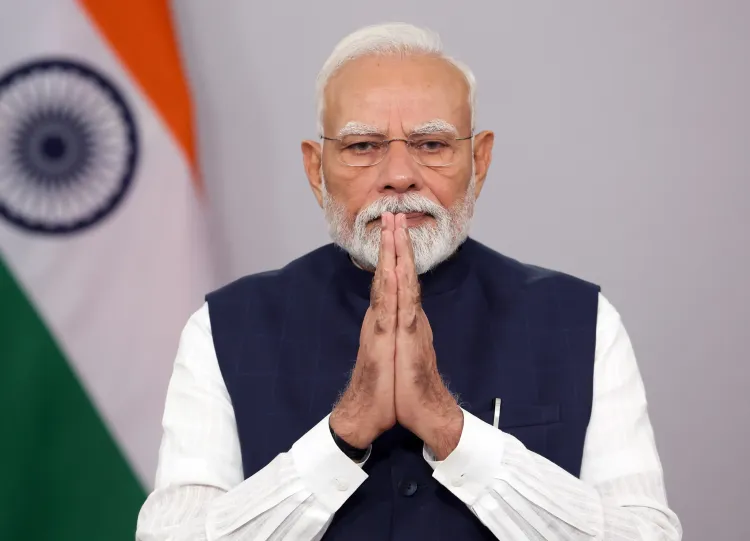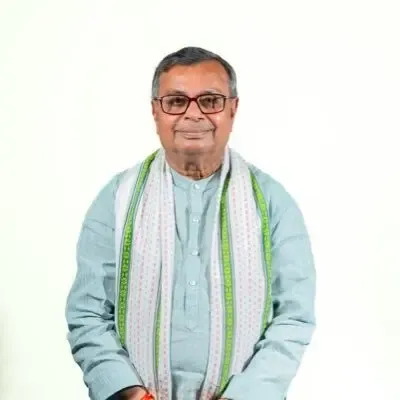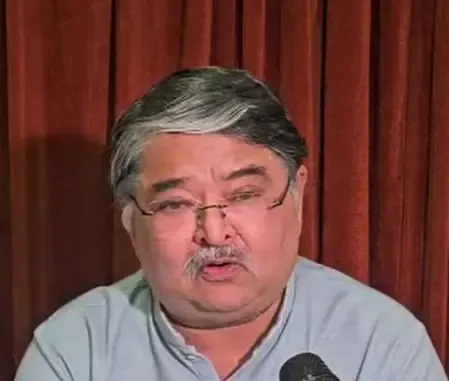Caste Count Goes Official: Is the BJP Seizing the Agenda While the INDIA Bloc Faces Strategic Recalibration?

Synopsis
Key Takeaways
- Inclusion of caste enumeration in the Census marks a historic decision.
- The BJP aims to reshape political narratives surrounding caste.
- Opposition parties may face challenges in leveraging caste issues.
- This decision highlights the government's responsiveness to social demands.
- Future policies could be influenced by accurate caste data.
New Delhi, April 30 (NationPress) In a significant decision with extensive social and political ramifications, the government led by Prime Minister Narendra Modi has sanctioned the inclusion of caste enumeration in the forthcoming national Census. This announcement was made by Union Minister Ashwini Vaishnaw following a meeting of the Cabinet Committee on Political Affairs (CCPA) on Wednesday, amidst rising political momentum surrounding caste data and its influence on public policy.
Vaishnaw, while addressing the media, described the decision as both a corrective measure and a governance reform. He stated that although some states had previously conducted caste surveys, many were executed in a politically charged and non-transparent manner, resulting in confusion and mistrust within society. “To maintain the integrity of our social fabric and ensure that caste enumeration is not misappropriated for narrow political agendas, it is vital to incorporate it transparently within the formal Census process,” he emphasized.
The Union Minister strongly criticized the Congress and its INDIA bloc allies, accusing them of leveraging the demand for a caste census solely for political advantage. He highlighted that no caste enumeration has been integrated into any population census since India’s Independence, despite persistent demands.
Reflecting on history, Vaishnaw recalled that in 2010, then Prime Minister Dr. Manmohan Singh assured the Lok Sabha that the Cabinet would deliberate on the inclusion of caste data in the Census. A Group of Ministers was later established, with several parties advocating for the advancement of caste enumeration.
Nevertheless, despite this apparent consensus, the UPA government refrained from executing a caste census. Instead, it conducted a socio-economic survey, known as the SECC (Socio-Economic and Caste Census), which failed to produce reliable or usable caste data due to its flawed design and lack of official endorsement.
This decision arrives at a time when opposition parties, notably Rahul Gandhi and the Congress, have made the caste census a pivotal electoral issue.
Rahul Gandhi has consistently utilized it as a political tool, frequently criticizing the BJP for allegedly ignoring the matter. The official inclusion of caste enumeration in the Census effectively diminishes that political leverage, just as Bihar prepares for Assembly elections, observers note.
In Bihar, where caste plays a crucial role in electoral dynamics, the RJD-Congress alliance was gearing up to make caste census a significant campaign topic. However, with the PM Modi-led government now assuming control of the process at the national level, the opposition’s argument risks being weakened. Political analysts predict that this move could instigate internal shifts within the INDIA bloc.
This action represents more than a mere bureaucratic update; it is a strategic political and social repositioning. It transforms the caste discourse, undermines opposition narratives, and sets the groundwork for future policy changes grounded in authentic demographic data. As the Census process commences, all eyes will be on how the government manages the rollout, release, and reactions to caste-based findings.
For now, the Modi government has taken the reins on an issue that was once central to its opponents' agenda—and in doing so, it may have fundamentally altered the tone of electoral discussions leading into 2025 and beyond.
The government also cited a precedent that reassures social stability: when the Modi administration implemented a 10 percent reservation for economically weaker sections (EWS) in the general category, it did not incite social unrest. Vaishnaw argued that this demonstrated the government's capability to introduce socially sensitive reforms without disrupting societal harmony.
By undertaking this politically sensitive yet constitutionally sound initiative, the Modi government not only positions itself as responsive and inclusive but also conveys a clear message that it is prepared to tackle complex issues with strategic clarity rather than mere electoral opportunism.









